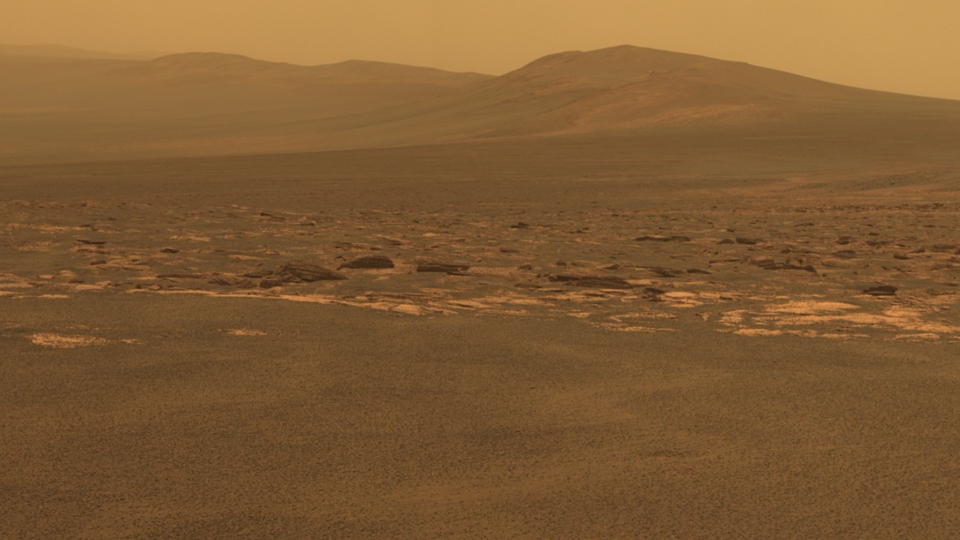 Mars rover Opportunity is said to be near the end of its life. But it’s been a hell of a pay off on a probe that was designed to last a few months at most!
Mars rover Opportunity is said to be near the end of its life. But it’s been a hell of a pay off on a probe that was designed to last a few months at most!
Opportunity is still providing great images and data for scientists back on earth like the gorgeous picture above taken from the rim of a 14 mile crater called Endeavour located near the equator in a place called Meridiani Planum. Opportunity is looking for signs of ancient water or water ice buried beneath the dry dusty surface. The current thinking among astrobiologists is, if microbes ever thrived on Mars, they would probably have been in an ancient ocean or lake.
And earth bound biologists are working on strains of bacteria that might one day survive on the Martian surface, giving rise to a sort of microbiological farming industry:
In its quest to colonize space, NASA has awarded a $750,000, three-year grant to researchers at South Dakota State University, the School of Mines and Technology and Oglala Lakota College to make fuel, oxygen and clean water for colonists. Those researchers already are genetically manipulating cyanobacteria – commonly known as blue-green algae – so that it produces and secretes the renewable carbon molecules necessary for gasoline, jet fuel and diesel.
Shut up and eat your algae you ungrateful brat! Why back in my day we had to eat … Kidding aside — hey it’s the Zingularity — Mars is a worthy goal for human exploration. It’s by far the nearest planet where humans can actually survive on the surface. The problem is Mars will probably never grab the public’s imagination like the moon did. The moon may be way smaller than Mars, but it’s also much closer. It’s been hanging up there, big and beautiful, since our ancestors stumbled out of a Pliocene forest on two shaky legs. Poems and songs have been written about it, lovers have gazed into each other’s eyes under its ghostly glow and fallen in love. Mars is a spark of light most people can’t find in the night sky without help. The moon is just way more ubiquitous for most people. That may not be a scientific analysis, but it is human nature.

I’m not a genetic-engineering alarmist, but gotta say that I do get a little uneasy at the thought of unleashing diesel-fuel secreting microbes into another planet’s environment.
binjabreel @ # 1 – No problem: if they get out of hand, we’ll just launch a couple of rabbits to Mars and that’ll fix it.